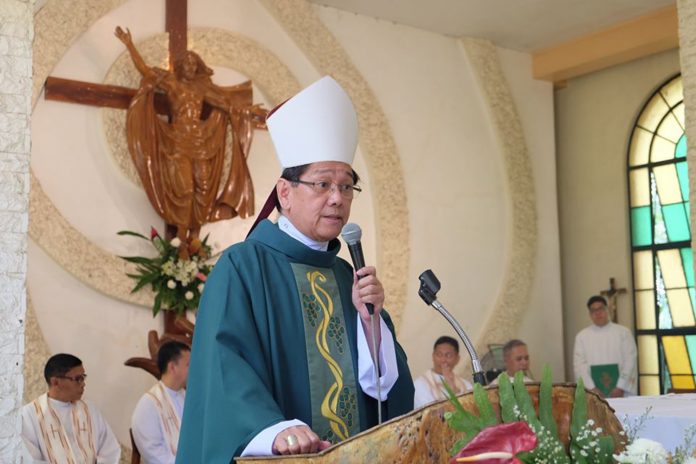Bishop Julito Cortes of Dumaguete warned that a proposed government reclamation project will turn the city’s vibrant coastal ecosystem into an “underwater cemetery.”
The prelate said the 23-billion-peso reclamation project will directly affect “174 hectares of marine life that host seagrass, coral reefs, habitats of various species.”
“Reclaiming 174 hectares of this littoral zone will logically create 174 hectares of underwater cemeteries,” said Bishop Cortes in an online forum this week.
The bishop said the “so-called Smart City” project will inevitably “pollute” the surrounding environment.
He said that even if the intention of the project promotes “economic exchange and profit,” it would lead to an “ecological crisis.”
“The delicate littoral ecosystem off the coast of Dumaguete City is a common good that cannot be adequately safeguarded or promoted by market forces,” he said.
The prelate reiterated that as “stewards” it is not enough to be aware of environmental issues and ecological concerns but to be “role models” of “ecological spirituality” rooted in moral principle.
The Diocese of Dumaguete has earlier expressed opposition to the project that environmental activists said threatens the remaining marine ecosystems of the city.
The 174-hectare government reclamation project is supposed to pave the way for the construction of a “Smart City” in Dumaguete.
Environmental activists, however, said the project will affect four marine protected areas, including “more than 200 species of fish.”
A study done by eight environmental scientists warned that the project “will directly destroy, literally bury, the few remaining coral reefs, seagrass and soft-sediment ecosystems that support small-scale fisheries” around Dumaguete.
“About 60 percent of these fish species are relied upon by local fishers in Dumaguete for livelihood and subsistence,” read the group’s statement.
The scientists said the reclamation project will have a “direct and indirect” impact on the 104 hectares of the city’s four marine protected areas.”
The group said if the project is implemented, the city of Dumaguete “will renege on its commitment to do its part in marine conservation for the province, region, and country.”
The city government has already issued a Notice of Award to the project proponent on June 23.
The project aims to develop a “5G-equipped ‘Smart City’ island” with commercial and residential infrastructures.









